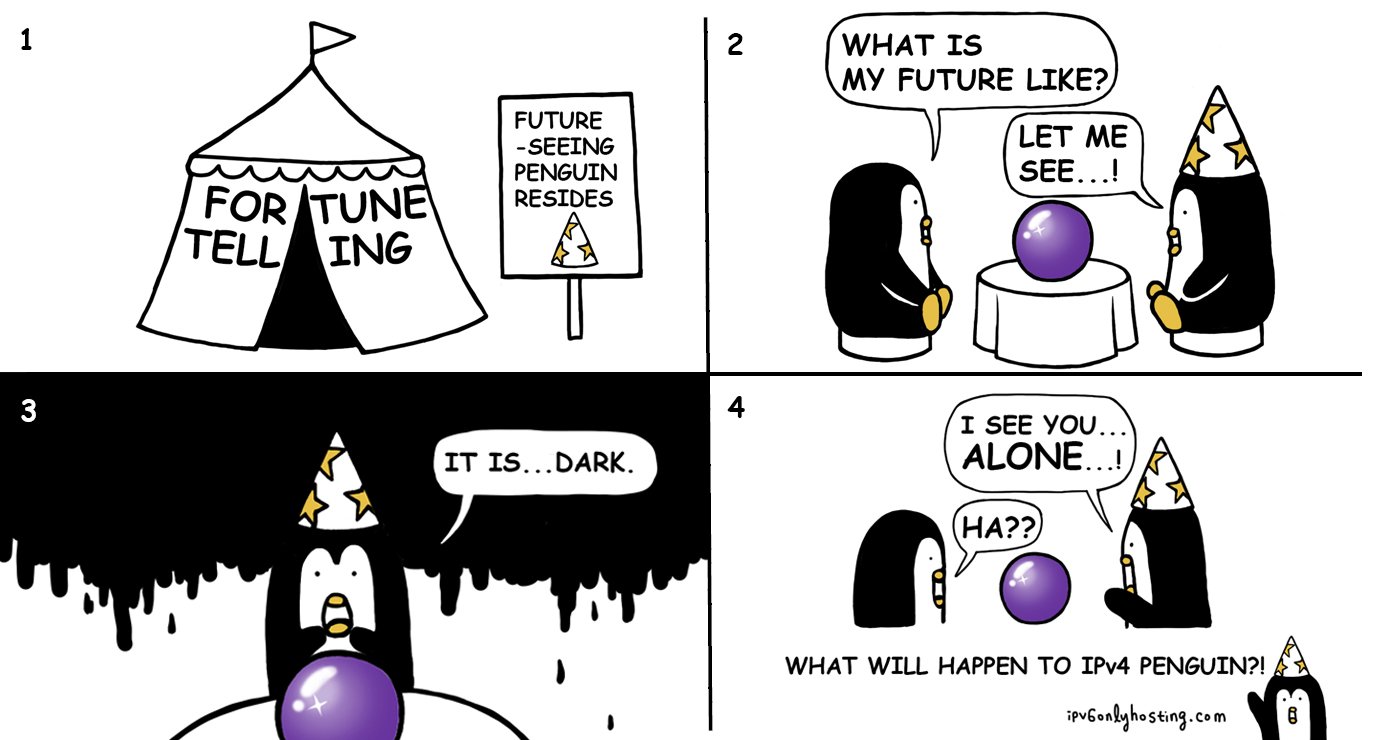There are so many good reasons to love IPv6, but there is one that is rarely being spoken about: Peace of mind, stability and lack of fear.
Two steps back: back into the IPv4 world
Assume for a moment that you are not running IPv6 (only) networks, that you are still using legacy IP (IPv4) addresses in your networks. Further assume, you are starting a green field project. Obviously, you will not have access to a big pool of public IPv4 addresses, because they have run out everywhere.
So you are likely to start fresh, let's assume for the moment that you have the freedom to use the whole RFC1918 network 10.0.0.0/8. That is great, isn't it? I mean, you have 24 bit of address space, just for yourself.
Problem #1: How to divide your 10.0.0.0/8 network?
So first things first - you will want to divide your network somehow. Maybe a /16 for internal services, a /16 for client computers and a /16 for VPN? This might work out, but what if there is a new branch of your organisation? Then you might need another set of /16s and even though you have a large space, you might easily run out of private IP networks. So instead of using /16s, you can argue that /20 or even smaller might be feasible.
But that is not the real problem.
The real problem #1: you have to think
Yes, you read correctly. The main problem with the whole approach before is that you need to spend time solving a problem that has already solved when using IPv6:
- You just use a /64 per network. That means you have 64 bit of address space per network. You will never run out of this
- You use a /48 per site. This means you have access to 65536 /64 networks. More than you will ever use.
- You have another site? Just take another /48. Don't think.
Most people argue that the big address space of IPv6 is its advantage. We, however, think that what you don't have to do, because of the big address space is its real advantage.
For us, IPv6 allows us to free our mind, we don't have to fear about doing something wrong.

Problem #2: you can run out of private IP address space
Assume the following: you are moving into a new home. You just want to have Internet up and running, so you buy an off-the-shelf router from the next electronic supermarket. This device handles everything for you, dialup, firewall, nat - so nothing to be worried about.
In practice, most of the routers that you buy will assign a /24 network to your home network. This is enough for about 250 devices to be online. However, we have read about these routers running out of addresses in AirBnB settings, where a lot of different people roam in your home. While in theory DHCP will recycle old leases, it cannot do so, if the lease is still valid.
So what you wanted when buying that router is a stable solution that you don't have to care about. However IPv4 routers in their default configuration might not be suitable for this anymore.
Again, the solution here is simple: when using IPv6, just assign a /64. You will always have enough IP addresses, no matter what you do.
One step forward
So what we recommend is that you begin to use IPv6 today, not tomorrow. You prevent yourself from running into problems that have been solved a long time ago. You can focus on much more important things then selecting and dividing your network.
And most importantly: You can free your mind with IPv6.
